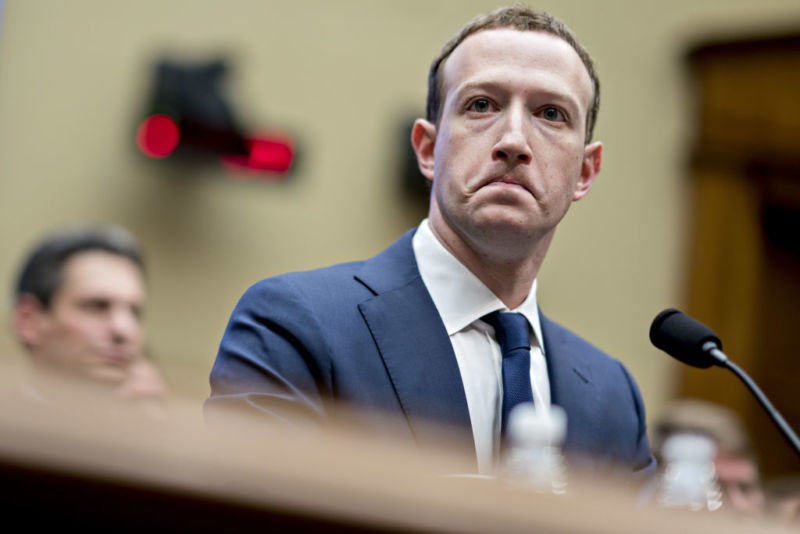
Facebook is only 15 years old, yet in that time it has become the world’s dominant social media platform, boasting more than 2.4 billion users. It has also become the world’s second-largest digital advertising platform, effectively the runner-up in a worldwide duopoly dominated by Google. Now, it is under a baker’s dozen of investigations alleging that it rose to the top by using unfair, anticompetitive tactics—and at least one competitor kept records.
Snap, parent company of Snapchat, kept a dossier “for years” detailing Facebook’s attempts to thwart it, sources told The Wall Street Journal. The file, dubbed “Project Voldemort” after the just-doesn’t-know-when-to-stay-dead villain of Harry Potter fame, “chronicled Facebook’s moves that threatened to undermine Snap’s business.”
According to the WSJ, Snap’s legal team recorded instances where Facebook discouraged prominent social media influencers with a presence on multiple platforms from mentioning Snap on their Instagram accounts. Snap executives also suspected Facebook was suppressing content that originated on Snap from trending on Instagram, when such content was shared there.
Facebook twice tried to acquire Snapchat and was twice rejected. In 2013, Snap turned down a $3 billion takeover offer. In 2016, Facebook reportedly once again made overtures to the firm, which instead went forward with an IPO early in 2017.
After the snubs, Facebook started cloning many of Snapchat’s most popular features, The Economist reported in 2018. Instagram Stories launched in August 2016, and Facebook Stories followed suit in March 2017.
Quashing the competition?
Facebook’s behavior toward competitors is at the heart of the many antitrust probes against it. Being the dominant player in a sector is not against the law, even if you’re the only real player in a sector—as long as you play fair. Abusing that market power, or actively working to squash, suppress, or buy out competitors, is called anticompetitive behavior. That is illegal.
Startups are now harder to, well, start up, The Economist reported last year, thanks to the overwhelming influence the largest tech players—Facebook, Google, and Amazon—have in the sector. “Big tech firms have been known to intimidate startups into agreeing to a sale, saying that they will launch a competing service and put the startup out of business unless they agree to a deal,” one source who used to conduct such negotiations on behalf of a big tech firm told The Economist.
The more acquisitions a firm like Facebook makes, the more it’s well-positioned to make future acquisitions. The WSJ reports that Onavo, an Israeli startup that Facebook acquired in 2013, is also on regulators’ radar. Onavo’s free app advertised itself as a VPN… and redirected traffic it carried through Facebook servers, where it could then be logged and analyzed. Data gathered through Onavo gave Facebook a heads up into Snapchat’s growing popularity—and also let Facebook see when its Stories features succeeded in siphoning off Snapchat users. Onavo data also helped drive Facebook’s 2014 acquisition of WhatsApp.
(Onavo was pulled from Apple’s App Store in 2018 and from Google Play a few months later; Facebook finally discontinued it in May.)
Facebook CEO Mark Zuckerberg’s actions are also part of the many antitrust probes, the WSJ notes:
In some cases, after Facebook’s overtures were spurned, the social-media giant copied features of the former targets.
For example, when Mr. Zuckerberg met with the founders of startups, including Evan Spiegel, chief executive of Snap, and Dennis Crowley, co-founder of Foursquare Inc., he presented them with two scenarios: either they accept the price he was offering for their companies, or face Facebook’s efforts to copy their products and make operating more difficult, according to people familiar with the matter. In both cases, after the companies rejected the overtures, Facebook soon after released features that mimicked the products from Snap and Foursquare.
Foursquare in 2014 started shifting from a consumer-focused app to providing location-based tech and data to businesses.
Widening investigation
At this stage, a list of regulators who aren’t investigating Facebook might be easier to compile than a list of regulators who are.
In June, Congress launched an antitrust probe looking at “competition in digital markets.” Several hearings related to the issue took place in June and July, and more are scheduled for this fall. The House Judiciary Committee also recently sent a massive request for information to the four companies, seeking a decade’s worth of relevant data.
By July, the traditional antitrust regulators were all on board. The Department of Justice publicly confirmed that its antitrust division was actively investigating widespread “concerns that consumers, businesses, and entrepreneurs have expressed” about “market-leading online platforms.” The agency didn’t name names, but that list of “market-leading” platforms is generally considered to include Amazon, Apple, Facebook, and Google.
Facebook also told investors that month that it was the target of an open antitrust investigation by the Federal Trade Commission.
Attorneys general for several states also launched an antitrust probe into Facebook earlier this month. New York Attorney General Letitia James, leading the coalition, said the probe would determine “whether their actions endangered consumer data, reduced the quality of consumers’ choices, or increased the price of advertising.”
Meanwhile, Facebook might be an American company, but its global footprint means regulators worldwide have a vested interest in its behavior. The European Union is also actively probing Facebook for antitrust reasons, according to media reports, and member states such as Germany are also taking action. Australian regulators also think they should maybe have a closer look.
https://arstechnica.com/?p=1572957

